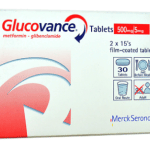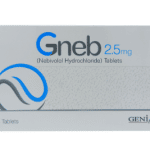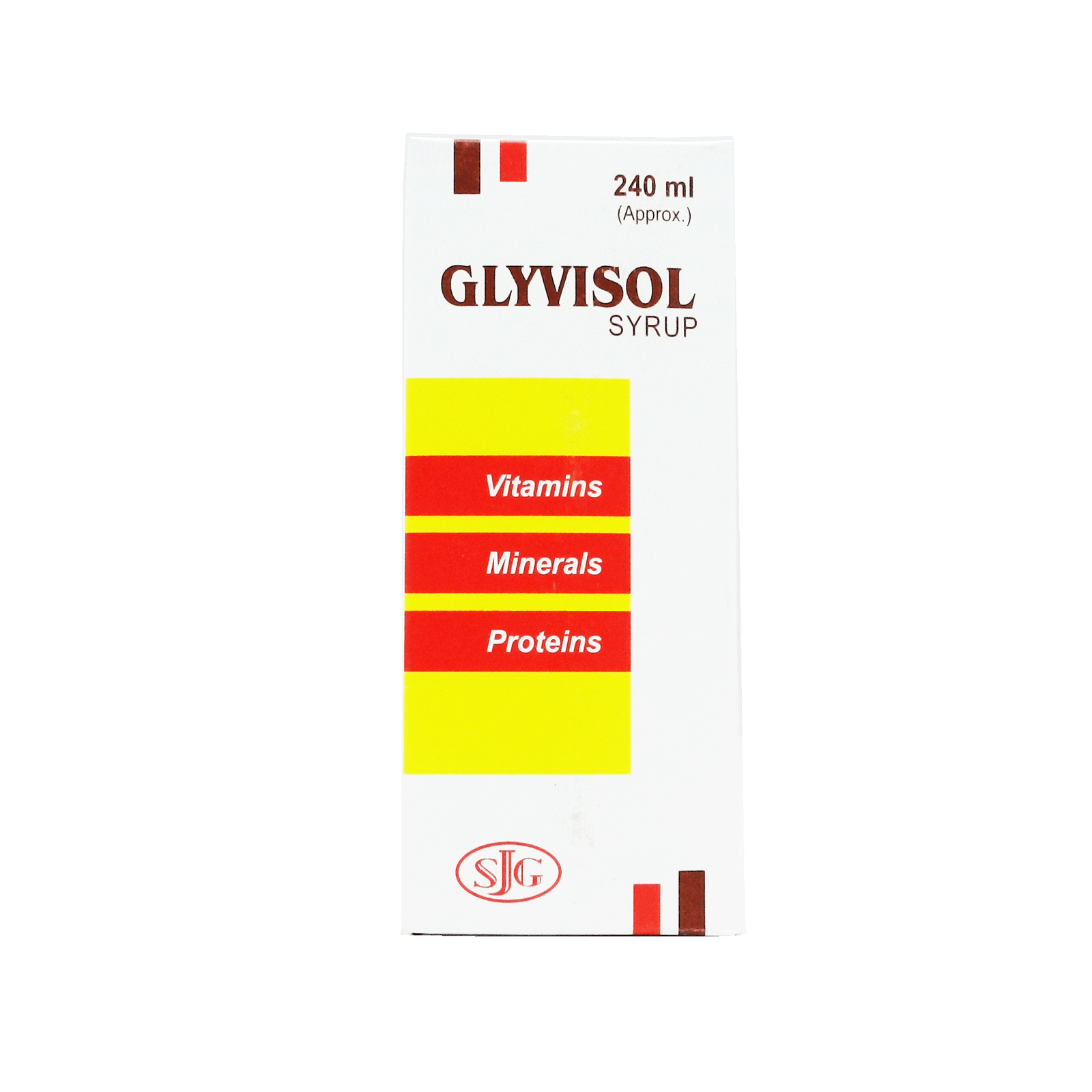delivery within 72 Hours
Glyvisol Syrup 240ml
₨ 250
Generic: vitamin & minerals , proteins
Pack Size: 1
Product Form: Syrup
Delivery within: 2 to 3 working days across Pakistan
Shipping & Delivery
-
Courier delivery
Our courier will deliver to the specified address
2-3 Days
From Rs 250
-
Free 15-Day returns

Black Friday Blowout!
Description
Glyvisol Syrup is a nutritional supplement containing a combination of vitamin & minerals, and proteins. This syrup is formulated to provide essential nutrients that support overall health and well-being.
Ingredients:
- Vitamins: Glyvisol Syrup contains various vitamins, including vitamin A, vitamin C, vitamin D, vitamin E, vitamin B complex (B1, B2, B3, B5, B6, B7, B9, B12), and other essential vitamins. These vitamins play crucial roles in metabolism, immune function, vision, bone health, and cellular processes.
- Minerals: The syrup contains essential minerals such as iron, calcium, zinc, magnesium, selenium, and others. These minerals are vital for maintaining bone health, supporting immune function, regulating enzyme activity, and promoting overall health.
- Proteins: Glyvisol Syrup provides protein sources that contribute to muscle growth and repair, tissue maintenance, immune function, and overall growth and development.
Uses:
Glyvisol Syrup is prescribed for the following purposes:
- Nutritional supplementation: Glyvisol Syrup is used to supplement the diet with essential vitamins, minerals, and proteins that may be lacking in the regular diet or during periods of increased nutritional requirements.
- Support for growth and development: The combination of vitamins, minerals, and proteins in Glyvisol Syrup supports optimal growth and development in children, adolescents, and individuals with increased nutritional needs.
- Maintenance of overall health: Regular use of Glyvisol Syrup helps maintain overall health and well-being by providing essential nutrients necessary for various bodily functions and processes.
Side Effects:
Glyvisol Syrup is generally well-tolerated when taken as directed. However, some individuals may experience minor side effects, including:
- Nausea or gastrointestinal discomfort
- Allergic reactions (rare)
- Upset stomach or diarrhea (in case of excessive intake)
If you experience any severe or persistent side effects, discontinue use of Glyvisol Syrup and consult your healthcare provider promptly.
Precautions:
- Consult your healthcare provider before starting Glyvisol Syrup, especially if you have any underlying medical conditions, allergies, or are taking other medications or supplements.
- Follow the recommended dosage and administration instructions provided on the product label or as directed by your healthcare provider.
- Keep Glyvisol Syrup out of reach of children and store it in a cool, dry place away from direct sunlight and moisture.
When Not to Use:
Glyvisol Syrup should not be used in individuals with known hypersensitivity or allergy to any of the ingredients. If you have any concerns about potential interactions with other medications or medical conditions, consult your healthcare provider before using Glyvisol Syrup.
FAQ:
- How should Glyvisol Syrup be taken? Take Glyvisol Syrup orally, as directed by your healthcare provider or as indicated on the product label. Shake the bottle well before use. Use the provided measuring device to ensure accurate dosage.
- Can Glyvisol Syrup be taken with food or on an empty stomach? Glyvisol Syrup can be taken with or without food. However, it is generally recommended to take it with meals to enhance absorption and minimize gastrointestinal discomfort.
- Is Glyvisol Syrup suitable for children? Glyvisol Syrup is suitable for children and adolescents as a nutritional supplement to support growth and development. Follow the recommended dosage based on age and weight, as advised by your healthcare provider.
- Are there any dietary restrictions while taking Glyvisol Syrup? Maintain a balanced diet rich in fruits, vegetables, whole grains, and lean proteins while taking Glyvisol Syrup to complement the nutritional benefits provided by the supplement. Limit intake of processed foods, sugary snacks, and high-fat foods.
- How long can Glyvisol Syrup be taken continuously? Glyvisol Syrup can be taken continuously as part of a balanced diet and healthy lifestyle. Follow your healthcare provider’s recommendations regarding the duration of supplementation, especially during periods of increased nutritional needs. Regular monitoring of nutritional status may be necessary for optimal health outcomes.
Customer Reviews
You must be logged in to post a review.










Reviews
Clear filtersThere are no reviews yet.